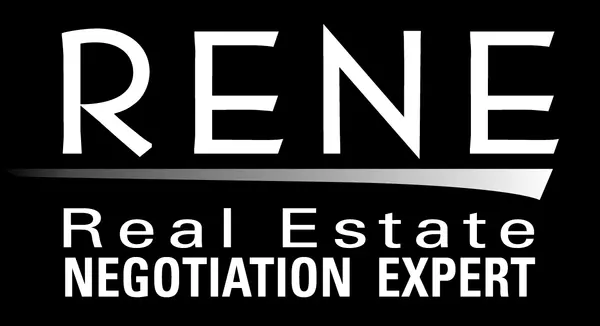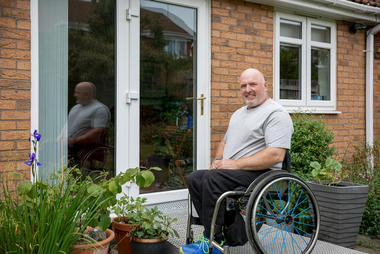How Much Home Can You Afford...Realistically?
If you're like many Americans, your home will be the most expensive thing you own. It will be a key part of your estate as you plan for the long term. So you need to think strategically from the outset.
To start with, one of the first steps is to talk with a mortgage lender and find out how much they think you can handle. You do not need to be ready to get preapproved to have this critical conversation. But pre-approval for a mortgage will be important before you start shopping for a home.
What is preapproval? That's when you work with a mortgage lender to determine how large of a loan that lender is comfortable giving you. To begin, you'll provide a lender with copies of your last two paycheck stubs, last two months of bank account statements, last two years of tax returns and last two years of W-2 forms.
Lenders will study these forms to verify your monthly income.  They'll also check your credit to determine how well you've paid your bills and managed your debt in the past.
They'll also check your credit to determine how well you've paid your bills and managed your debt in the past.
Armed with this information, lenders will provide you with a preapproval letter stating how much of a mortgage you can qualify for. For instance, your lender might determine that it is comfortable giving you a mortgage of $400,000.
Once you have this letter, you can shop for homes that you know you can finance. You won't waste time looking at $500,000 homes if you are only qualified for a mortgage of $400,000.
The good news is you won't have to pay for getting a preapproval! You only pay a lender after that lender originates your mortgage loan and you sign the closing documents. You also are not required to apply for your mortgage with a lender that has given you a preapproval letter! You can still shop around with different lenders.
Know the Market
One thing that might be holding you back from purchasing is the rising costs of homes in your area. While this will likely be the case for even longer, it is still possible to find a mortgage that has flexibility built into it to help defer some of these higher costs.
But how much are you comfortable paying each month?
Knowing how much a lender is willing to lend you is one thing. Being comfortable with the size of a monthly mortgage payment is another. You will also want to consider other home expenses such as home repairs and remodels if you don't plan on buying a turn-key home. While these expenses can add up quickly having this information in mind up front can help you in the future.
Just because a lender will approve you for a mortgage of, say, $375,000, doesn't mean that you'll be comfortable making the monthly payments that come with a loan of that size.
Most lenders say that your total monthly debt, including your new estimated mortgage payment, should equal no more than 43% of your gross monthly income, which is your income before taxes are taken out. There is many calculators available out there that can help you determine these factors beforehand. Reach out if you would like help finding one.
Know your budget
But even the debt to income ratios are a guideline, and not a hard-and-fast rule. You might not want to spend 43% of your gross monthly income on debt payments. You might feel more comfortable spending 36% or less of your income.
The key is to create your own household budget, listing your monthly expenses and income. Make sure to include expenses that vary each month, such as your utility bills, medical expenses, groceries and gas costs. Include too, discretionary spending, estimating how much you spend each month on eating out, going to the movies, shopping and other entertainment expenses.
Once you've calculated this, you can see how much money you have available to spend each month on your mortgage payment. Be careful not to take out a mortgage that will result in a monthly payment that will consume all your extra cash. You don't want paying your mortgage bill to be a financial burden each month.
Only you can determine how large of a mortgage payment you are comfortable taking on. Considering the 43% debt-to-income rule and getting preapproved can help you make that decision. But drafting a budget to determine exactly how much extra money you have each month is a key step that you should never skip.
Modified by: Theresa Tscheschke Gunal ; Used courtesy of Sarah Tanggo, Home Actions, LLC
Categories
- All Blogs (36)
- Buying (3)
- Closings (1)
- Colorado (7)
- Condo's and Co-op's (2)
- Curb Appeal / Outdoor (1)
- Extended Stay Living/ Furnished Rentals (1)
- HOA's (2)
- Home Improvement (1)
- Home Repair (1)
- Inspections (1)
- Insurance (2)
- Interior Design / Staging (2)
- Monthly News (6)
- Mortgages (2)
- Moving (1)
- New Builds (1)
- Property Taxes (1)
- Remodeling (4)
- Retirement/ Adult Communities (2)
- Selling (1)
- Taxes and Investing (1)
- Title (1)
- Transaction Process (1)
- Vacation / Holidays (1)
- Your Home is Your Biggest Asset - Financial Goals (6)
Recent Posts










GET MORE INFORMATION

